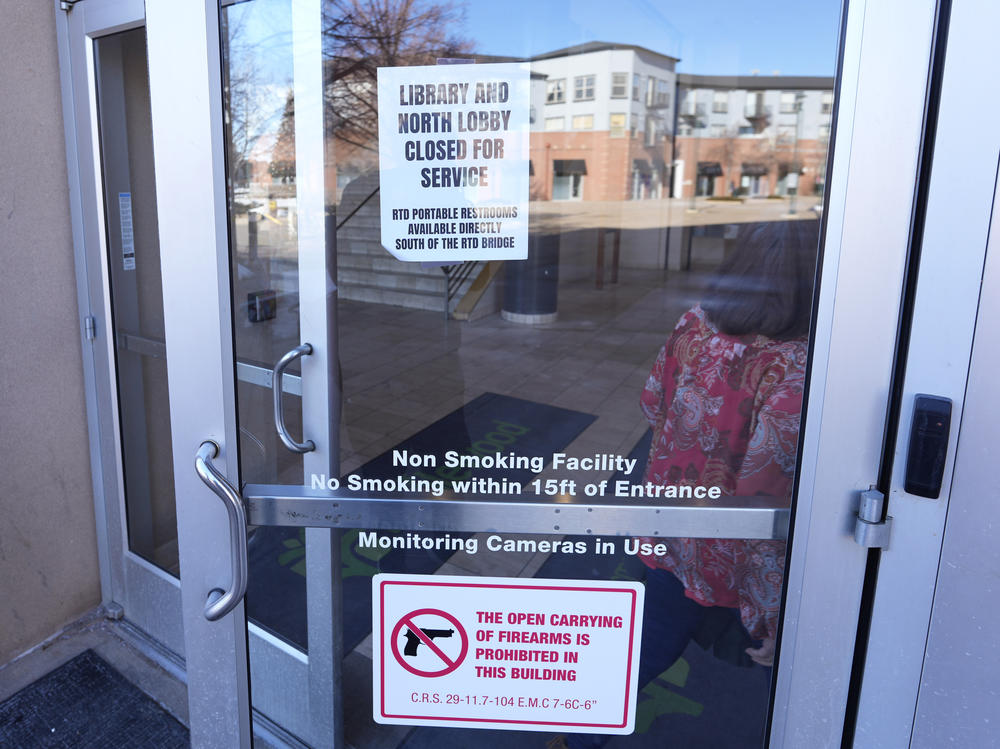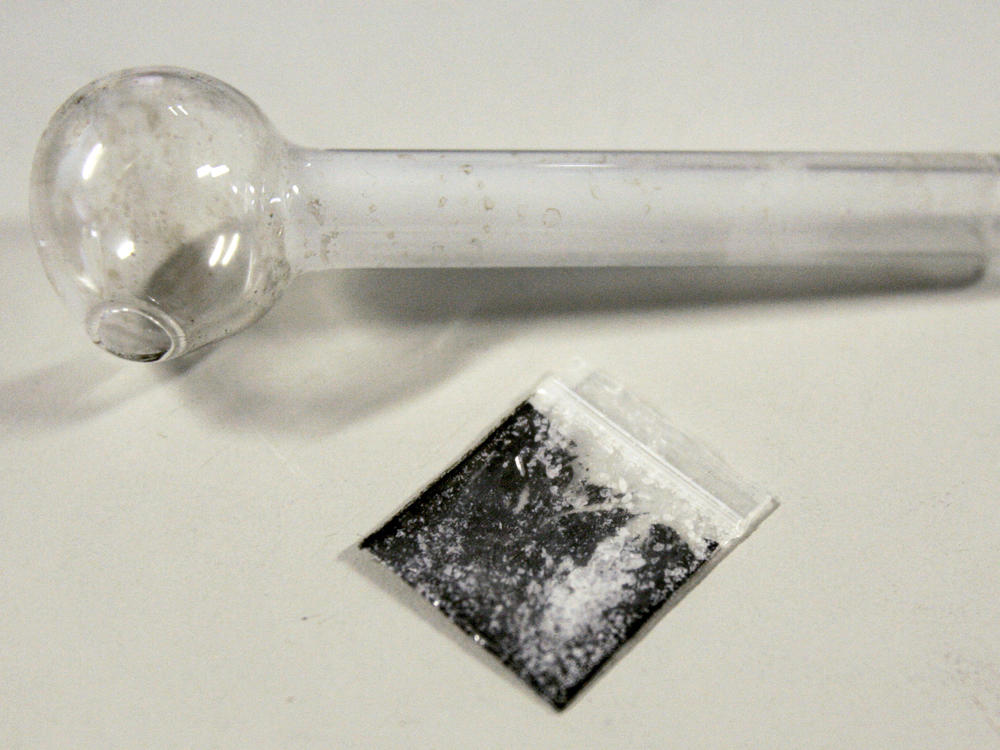Section Branding
Header Content
A Colorado library is closed after meth contamination. What will it take to clean it?
Primary Content
For the second time in as many months, a library in Colorado has temporarily closed its doors to clean up from meth contamination.
The Englewood Public Library in Colorado said it shut its doors last Wednesday after tests showed exhaust vents reflected meth contamination "with levels above state thresholds."
This comes just weeks after officials in Boulder, about 35 miles northwest of Englewood, closed their main library in December due to contamination from the drug. The library reopened Jan. 9, but bathrooms will remain closed off to visitors.
The tests taken in Englewood on Jan. 6 were done as a proactive measure after the reports from Boulder, the city said in a press release. These test results also showed the restrooms "exceeded state thresholds for methamphetamine contamination." Other spaces in the library reflected lower levels of contamination, but they will still require specialized cleaning, according to the city.
The American Library Association told NPR in a statement it is aware of the two incidents. "We are unaware of this issue occurring anywhere else in the country, currently or in recent years."
Because the contamination happened at a public library, cleanup efforts are likely to extensive and a lengthy process, an expert told NPR.
"In most cases, it's always doable. There's always a way to decontaminate. As far as the scope goes, that all depends on what the levels [of contamination] are," said Joseph Mazzuca, operations manager for Meth Lab Cleanup Company. His company is located in 41 states and he is a certified meth cleanup contractor in the state of Colorado.
Mazzuca shared with NPR what this process may look like.
Why is specialized cleanup necessary?
Meth is a highly addictive stimulant that can be ingested by smoking, snorting, swallowing a pill, or injection.
But it's unclear whether members of the public who went to the library are at a serious risk of health problems, said Chelsea Shover, assistant professor-in-residence at the UCLA David Geffen School of Medicine.
"No one's saying it's healthy or good for you," she said.
The National Institute on Drug Abuse advises that researchers aren't sure whether secondhand smoke from meth can have health effects or give people a high. However, the organization says, people who are exposed to secondhand smoke can test positive for meth afterwards.
"There is no clear scientific standard for identifying an unhealthy level of secondary meth exposure. Research does show, however, that health risks are more significant after prolonged exposure to high levels of contamination, especially for infants, young children, and people with existing health conditions," Boulder County Public Health officials said in a letter informing the public of health risks posed to meth residue at its library.
What is the cleanup process like?
Regardless of how unclear the science is on the risk of second-hand meth exposure to the public, robust cleanup is absolutely necessary under Colorado law.
The regulations state that meth limits may not exceed o.1 microgram. If a property owner finds that test results show that amount or higher, they must undergo decontamination efforts.
The other option is to undergo "a full clearance sampling protocol" — essentially, more testing.
It's unclear what level of meth was recorded at the Englewood Public Library. The city said of the test results: "The tests show contamination, but there is not a way to determine if the contaminated residue found is recent or has been present for a longer period."
Colorado is "strictly regulated" in comparison to other states, which have different levels of what is deemed safe for the public, Mazzuca said.
There are specialized meth contamination cleanup specialists throughout the country. Each state, including Colorado, collects its own lists of these contractors who can take on this work.
So far, Englewood said the remediation work will include getting rid of any contaminated surfaces, walls, HVAC ducts and exhaust fan equipment.
This will take some time, Mazzuca said. The first step for the contractors chosen for this job will be more testing to determine how extensive cleanup efforts need to be.
Mazzuca was tight-lipped on what exactly his company does to eradicate traces of meth from spaces. That's technically a company secret. The state rules don't say how that needs to be done.
"In the state of Colorado, the regulations are very strict where our objective is to physically remove the methamphetamine contamination from the surfaces and reduce it down to the acceptable levels. That's our objective," he said. "That's very difficult to do with methamphetamine. Very difficult."
What might this say about broader issues of meth use in the U.S.?
Englewood Public Library says that some staff and patrons reported an increase in drug activity at the library in recent months.
Tests were initially done in Boulder because staff there had also repeatedly reported suspicions of drug use at the library.
Mazzuca and Shover said these two locations in Colorado are a microcosm of the growing trend of meth use and needs for decontamination in the U.S.
Boulder County reported a dramatic increase in the number of methamphetamine-affected properties in Boulder County over the past six years.
And in 2021, the deadliest year in the U.S. for drug-induced deaths, most overdoses were from meth and fentanyl, KCRW reported.
"We definitely have evidence that there's more meth use," Shover said. "The other thing that is happening is we are seeing increased meth use in parts of the country where it was previously pretty rare," such as the Northeast.
Mazzuca has been in the business for 20 years and has seen the cycles ebb and flow.
"It's been pretty slow for the last 18 to 19 months and for the last month and going on, it's off the charts," he said, regarding calls to his business.
He believes part of that reason is long-abandoned properties that were once used as meth labs several years ago are being bought and re-sold, and therefore need to be cleaned.
"We're seeing a lot of that. Just in the last two months, we're getting calls from places we haven't had calls from for two years," he said.
Copyright 2023 NPR. To see more, visit https://www.npr.org.


